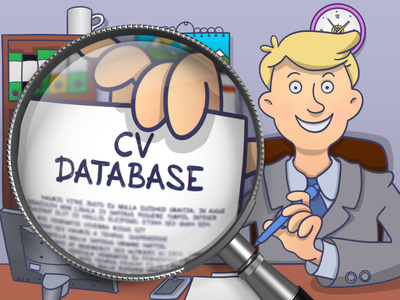Porters Corporation is based in Japan with a client base in at least 11 countries but being in Japan makes it obvious that the Japan market and culture is the most familiar. Having that in mind, we wanted to understand more about software solutions needs overseas. We started with Bangkok as a first step (next step is Singapore which will be shared in a later post) and visited Japanese recruitment companies, which is closer to home, and these are the pain points we summarized regarding recruitment data management.
1. Time loss due to unnecessary manual work

Most businesses have adopted recruitment tools to enhance their recruitment process management. However, it is evident that despite the investments made in acquiring a tool or software, the businesses still manage their recruitment data on excel, google drive, whiteboard, carton boxes, shelves etc. As a result, the use of the tool or software is not fully utilized, there is repetitive work, time is lost due to transitioning from one platform to another, omission and commission mistakes are more prone to take place. If the recruitment data is managed in one basket, efficiency and productivity would increase.
2. A tool/software not 'A Good Fit'

There is a challenge for the businesses to find a recruitment software that is 'a good fit'. It's either too much, too little, does not match business flow, not easy to navigate, cannot perform some necessary functions or it's just not flexible enough. These points can be addressed during the initial stages when determining which recruitment software to adopt. It is also necessary to be clear on the reasons for adopting a recruitment software and this reason(s) should give a guide to the software being a ‘good fit’. For example, identify the challenges you would like to address in your business such as consolidation of the database, KPI management, improve efficiency, automatic document creation et cetera. That way, as you move forward it will be clear what can be done and what cannot be done. This will save frustrations later and more focus would be on the actual job.
3. Database is important for every recruitment company

Generally, in Thailand, the turnover rate is high. A survey done by Aon plc and published in the Business Insider Singapore, states that Thailand turnover rate in 2018 was at 16.9% (quite a big figure as compared to Japan's 4.9% in the same year). From the study, the following were the top three reasons that attributed to turnover: 1) better external opportunity, 2) limited growth opportunity internally, and 3) equity of compensation. For that reason, it can be assumed that as long as the 3 named reasons exist, there will be some kind of job changes and therefore recruitment companies will be involved. If the recruitment companies can manage their candidate database well, there will be a good chance that they will place the same candidates in their next positions.
For those experiencing challenges with manual work in their recruitment process or are looking for a recruitment, we welcome you for a FREE TRIAL of HR-Business Cloud.
About Porters HR-Business Cloud
HR-Business Cloud is a highly customizable, comprehensive cloud-based Applicant Tracking System (ATS)/CRM for recruitment businesses from small-scale to large-scale.
For more information please feel free to contact us at sales@porters.jp







